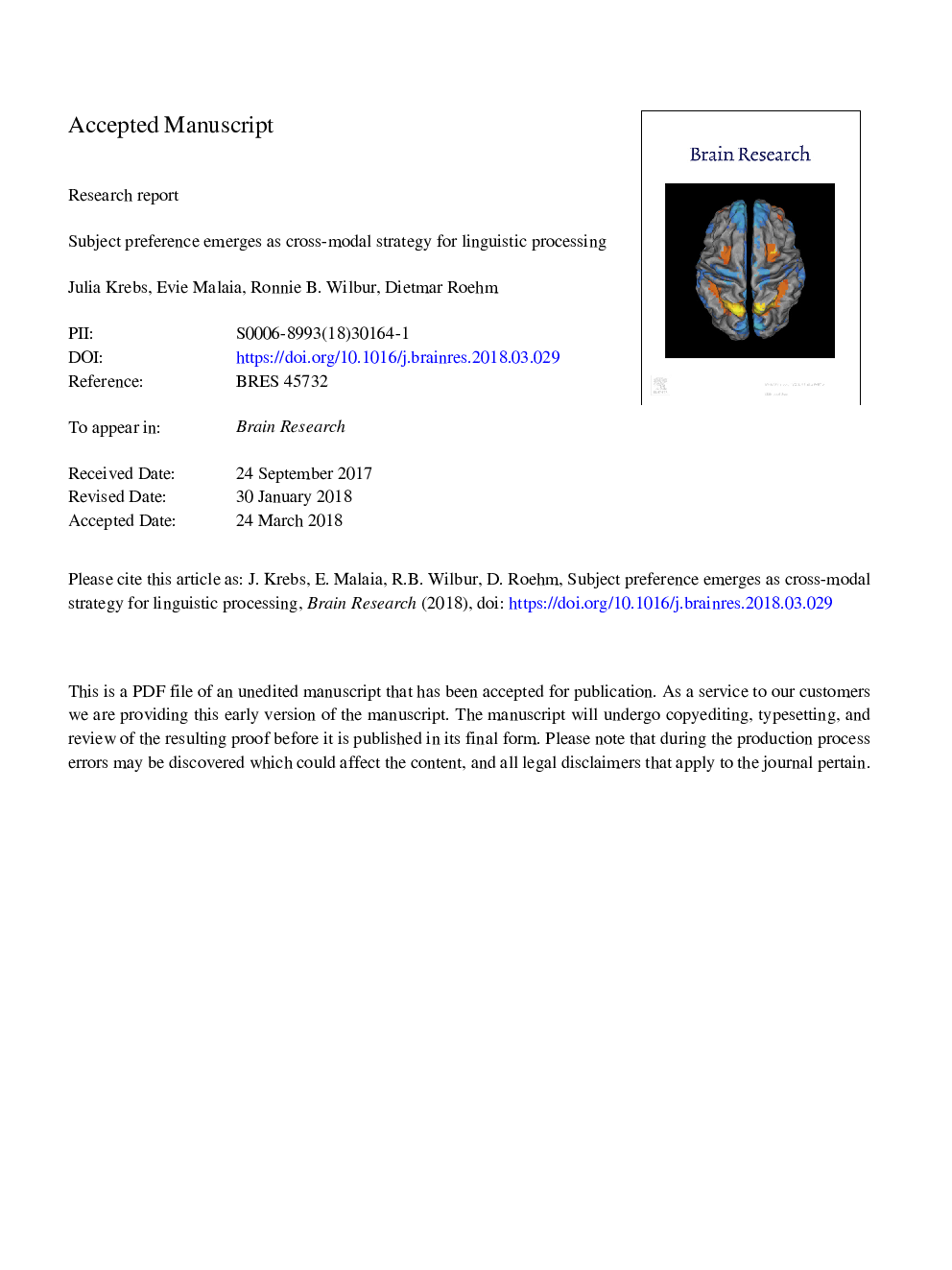| کد مقاله | کد نشریه | سال انتشار | مقاله انگلیسی | نسخه تمام متن |
|---|---|---|---|---|
| 8839778 | 1613754 | 2018 | 45 صفحه PDF | دانلود رایگان |
عنوان انگلیسی مقاله ISI
Subject preference emerges as cross-modal strategy for linguistic processing
ترجمه فارسی عنوان
ترجیح موضوع به عنوان استراتژی متقابل برای پردازش زبان شناختی ظاهر می شود
دانلود مقاله + سفارش ترجمه
دانلود مقاله ISI انگلیسی
رایگان برای ایرانیان
کلمات کلیدی
قطعنامه متقابل، ترجیح موضوع، پردازش زبان اشاره پتانسیل مربوط به رویداد، متقابل
موضوعات مرتبط
علوم زیستی و بیوفناوری
علم عصب شناسی
علوم اعصاب (عمومی)
چکیده انگلیسی
Research on spoken languages has identified a “subject preference” processing strategy for tackling input that is syntactically ambiguous as to whether a sentence-initial NP is a subject or object. The present study documents that the “subject preference” strategy is also seen in the processing of a sign language, supporting the hypothesis that the “subject”-first strategy is universal and not dependent on the language modality (spoken vs. signed). Deaf signers of Austrian Sign Language (ÃGS) were shown videos of locally ambiguous signed sentences in SOV and OSV word orders. Electroencephalogram (EEG) data indicated higher cognitive load in response to OSV stimuli (i.e. a negativity for OSV compared to SOV), indicative of syntactic reanalysis cost. A finding that is specific to the visual modality is that the ERP (event-related potential) effect reflecting linguistic reanalysis occurred earlier than might have been expected, that is, before the time point when the path movement of the disambiguating sign was visible. We suggest that in the visual modality, transitional movement of the articulators prior to the disambiguating verb position or co-occurring non-manual (face/body) markings were used in resolving the local ambiguity in ÃGS. Thus, whereas the processing strategy of “subject preference” is cross-modal at the linguistic level, the cues that enable the processor to apply that strategy differ in signing as compared to speech.
ناشر
Database: Elsevier - ScienceDirect (ساینس دایرکت)
Journal: Brain Research - Volume 1691, 15 July 2018, Pages 105-117
Journal: Brain Research - Volume 1691, 15 July 2018, Pages 105-117
نویسندگان
Julia Krebs, Evie Malaia, Ronnie B. Wilbur, Dietmar Roehm,
